Leisure, the Basis of Culture
Leisure
The Basis of Culture

Josef Pieper
Introduction by Roger Scruton
New translation by Gerald Malsbary

St. Augustines Press
South Bend, Indiana
1998
Copyright  1948 by Ksel-Verlag
1948 by Ksel-Verlag
Translation copyright  1998 by St. Augustines Press, Inc.
1998 by St. Augustines Press, Inc.
Originally published in German as Musse und Kult and Was heisst Philosophieren?
by Ksel-Verlag. Authors preface is from the first English edition, published by Pantheon Books, a division of Random House, Inc.
All rights reserved. No part of this book may be reproduced, stored in a retrieval system, or transmitted, in any form or by any means, electronic, mechanical, photocopying, recording, or otherwise, without the prior permission of St. Augustines Press.
Manufactured in the United States of America.
Library of Congress Cataloging in Publication Data
Pieper, Josef, 1904 - 1997
[Musse und Kult. English] Leisure, the basis of culture / Josef Pieper: introduction by
Roger Scruton; new translation by Gerald Malsbary.
p. cm.
Consists of a translation of the authors Musse und Kult, and of his Was heisst Philosophieren?
Includes bibliographical references.
ISBN 1-890318-35-3 (pbk. : alk. paper)
1. Leisure. 2. God - Worship and love. 3. Culture. 4. Philosophy. I. Malsbary, Gerald. II. Pieper, Josef, 1904 - 1997 Was heisst Philosophieren? English. III. Title.
BJ1498.P513 1998 175 - dc21
98-15340 CIP
4 5 6 7 8 9 10 10 09 08 07 06 05 04 03
The paper used in this publication meets the minimum requirements of the American National Standard for Information Sciences - Permanence of Paper for Printed Materials, ANSI Z39.48-1984.
Table of Contents
INTRODUCTION
by T. S. Eliot
The complaint is frequently heard that our time has little to boast of in the way of philosophy. Whether this deficiency is due to some ailment of philosophy itself, or to the diversion of able philosophical minds towards other studies, or simply to a shortage of philosophers, is never made clear: these are divisions of the question which are apt to become confused. Certainly, Where are the great philosophers? is a rhetorical question often asked by those who pursued their philosophical studies forty or fifty years ago. Allowing for the possibility that the great figures of our youth have become magnified by the passage of time, and for the probability that most of those who ask the question have not followed modern philosophical developments very closely, there remains some justification of the lament. It may be merely a longing for the appearance of a philosopher whose writings, lectures and personality will arouse the imagination as Bergson, for instance, aroused it forty years ago; but it may be also the expression of a need for philosophy in an older meaning of the word the need for new authority to express insight and wisdom.
To those who pine for philosophy in this ampler sense, logical positivism is the most conspicuous object of censure. Certainly, logical positivism is not a very nourishing diet for more than the small minority which has been conditioned to it. When the time of its exhaustion arrives, it will probably appear, in retrospect, to have been for our age the counterpart of surrealism: for as surrealism seemed to provide a method of producing works of art without imagination, so logical positivism seems to provide a method of philosophizing without insight and wisdom. The attraction which it thus offers to the immature mind may have unfortunate results for some of those who pursue their undergraduate studies under its influence. Yet I believe that in the longer view, logical positivism will have proved of service by explorations of thought which we shall, in future, be unable to ignore; and even if some of its avenues turn out to be blind alleys, it is, after all, worth while exploring a blind alley, if only to discover that it is blind. And, what is more important for my theme, I believe that the sickness of philosophy, an obscure recognition of which moves those who complain of its decline, has been present too long to be attributable to any particular contemporary school of thought.
At the time when I myself was a student of philosophy I speak of a period some thirty-five to forty years ago the philosopher was beginning to suffer from a feeling of inferiority to the exact scientist. It was felt that the mathematician was the man best qualified to philosophize. Those students of philosophy who had not come to philosophy from mathematics did their best (at least, in the university in which my studies were conducted) to try to become imitation mathematicians at least to the extent of acquainting themselves with the paraphernalia of symbolic logic. (I remember one enthusiastic contemporary who devised a Symbolic Ethics, for which he had to invent several symbols not found in the Principia Mathematica.) Beyond this, some familiarity with contemporary physics and with contemporary biology was also prized: a philosophical argument supported by illustrations from one of these sciences was more respectable than one which lacked them even if the supporting evidence was sometimes irrelevant. Now I am quite aware that to the philosopher no field of knowledge should come amiss. The ideal philosopher would be at ease with every science, with every branch of art, with every language, and with the whole of human history. Such encyclopaedic knowledge might preserve him from excessive awe of those disciplines in which he was untrained, and excessive bias towards those in which he was well exercised. But in an age in which every branch of study becomes more subdivided and specialized, the ideal of omniscience is more and more remote from realization. Yet only omniscience is enough, once the philosopher begins to rely upon science. No one today, I imagine, would follow the example of Bosanquet, who in his Logic leant so heavily upon illustrations drawn from Linnaean Botany. But while the philosophers exploitation of science is now likely to meet with severe criticism, we are perhaps too ready to accept the conclusions of the scientist when he philosophizes.
One effect of this striving of philosophy towards the condition of the exact sciences was that it produced the illusion of a progress of philosophy, of a kind to which philosophy should not pretend. It turned out philosophical pedagogues ignorant, not merely of history in the general sense, but of the history of philosophy itself. If our attitude towards philosophy is influenced by an admiration for the exact sciences, then the philosophy of the past is something that has been superseded. It is punctuated by individual philosophers, some of whom had moments of understanding, but whose work as a whole comes to be regarded as quaint and primitive. For the philosophy of the present, from this point of view, is altogether better than that of the past, when science was in its infancy; and the philosophy of the future will proceed from the discoveries of our own age. It is true that the history of philosophy is now admitted as a branch of study in itself, and that there are specialists in this subject: but I suspect that in the opinion of a philosopher of the modern school, the historian of philosophy is rather an historian than a philosopher.

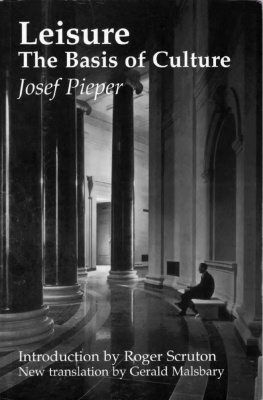
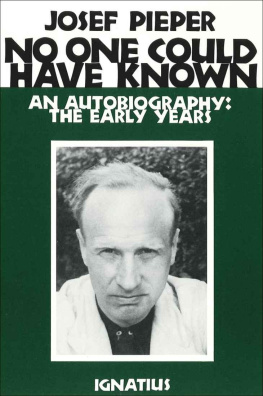




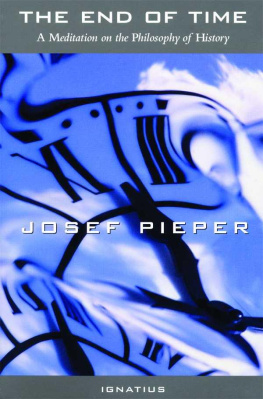

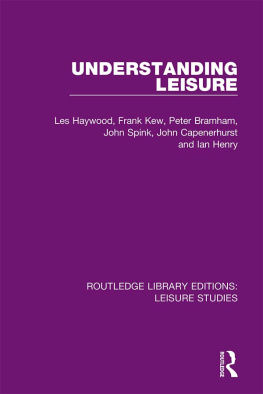
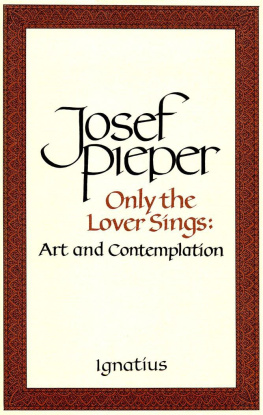
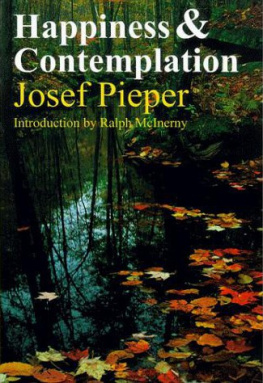
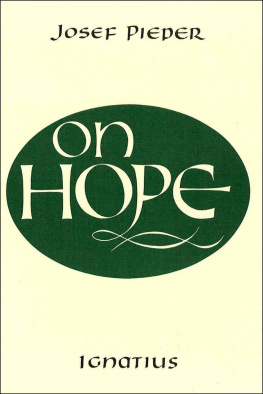
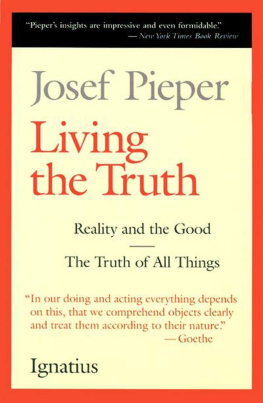
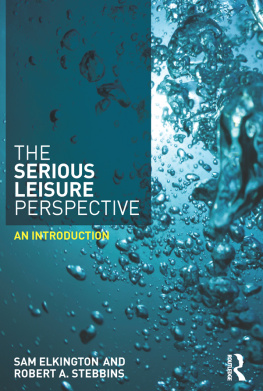
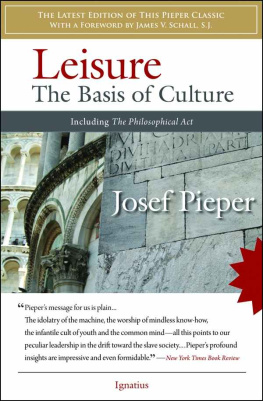


 1948 by Ksel-Verlag
1948 by Ksel-Verlag